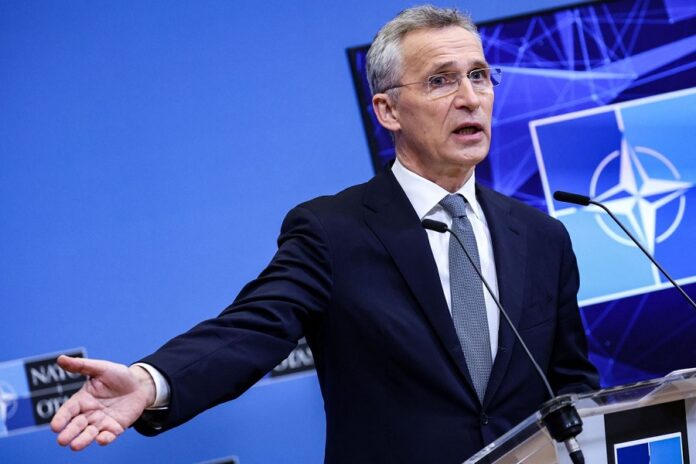Military commanders from NATO countries are working the phones with their Russian counterparts to make sure the U.S. and its allies don’t get dragged into a war over a misunderstanding on the Ukrainian border, according to Bloomberg.
In the past 24 hours, Russian missiles landed near Lviv, the city in western Ukraine that has been a gathering point for people fleeing the conflict. At the weekend Russia hit a military facility in the region about 22 miles from Poland and last week a reconnaissance drone darted through several eastern European countries before crashing in the Croatian capital Zagreb.
Western officials are worried that a more serious episode — if say a Russian missile struck NATO territory — could trigger an escalation and bring them into conflict with Russia.
A clash between the world’s two biggest nuclear powers is the nightmare scenario that military planners have worked to avoid since the Soviet Union acquired its first atom bomb at the start of the Cold War. The invasion of Ukraine has brought such a prospect into the calculations of leaders on both sides for the first time in a generation.
Russian President Vladimir Putin placed his nuclear forces on high alert at the end of February and has warned NATO not to interfere in Ukraine. Secretary of State Antony Blinken has said repeatedly that the U.S. is ready to defend any incursion by Russia into NATO territory.
But officials say they don’t want to stumble into a conflict just because someone made a mistake.
“With more military activities in the air, with drones, with planes, there is a risk,” NATO Secretary General Jens Stoltenberg told reporters this week ahead of a summit of alliance defense ministers. “We have to make every effort to prevent such incidents and accidents and, if they happen, to make sure that they don’t spiral out of control.”
Russian forces so far haven’t sought to provoke or engage allied forces, NATO officials say, even as they continue to bomb Ukrainian cities and attempt to regroup from initial failures and advances slowed by Ukrainian troops.
Still, convoys of weapons that the U.S. and its NATO allies ship to Ukraine are “legitimate targets” for Russia’s military, Deputy Foreign Minister Sergei Ryabkov said March 12 on state television, calling the deliveries a “dangerous move.”
Washington and its NATO allies are also seeking to deter Moscow from making a strategic miscalculation.
U.S. and other NATO members have stepped up their presence with more land, sea and air troops in the eastern part of the alliance, including Poland.
“Nobody wants to see this war escalate beyond where it is,” Pentagon spokesman John Kirby said, when asked about the risk of spillover in a Bloomberg Television interview Thursday. “That’s why our message has been very clear: we’re going to make sure we can defend NATO territory.”


